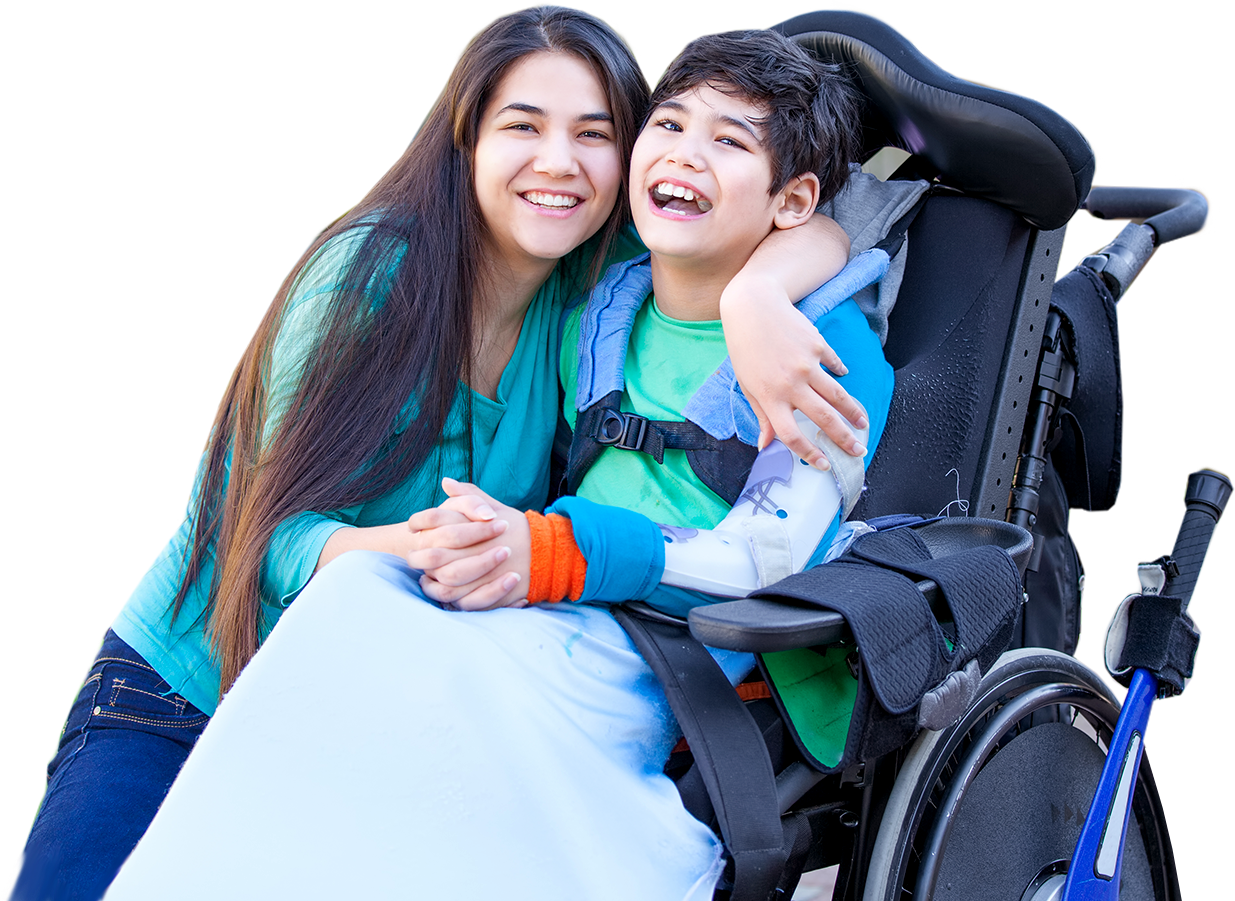Tips for Parents
tips from the CPFN community

- Alternative
- Assistive Technology
- Associated Conditions
- Birth Injury
- Causes of Cerebral Palsy
- Cerebral Palsy Diagnosis
- Cerebral Palsy Information
- Cerebral Palsy Therapies
- Cerebral Palsy Treatments
- Child Development
- Doctor Visits
- Education
- Equipment
- Featured
- Legal Help
- Medical Research
- News
- Patient Care
- Prenatal Care and Childbirth
- Stories
- Tips for Parents
- Types of Cerebral Palsy
- Updates
Posts in 'Tips for Parents'
Federal Law: The “Stay Put” Rule
CPFN Special Contributors Anita Howell and Lisa Viele explain the federal “Stay Put” rule—which gives parents a voice when making decisions about their children’s education—and how it impacted Anita’s son, Ryan. TRANSCRIPT Text: Ever walk into an IEP (Individualized education plan) meeting and feel overpowered by the teachers and their plans? The federal “Stay Put”... Read More
How to Find a Cerebral Palsy Lawyer
Cerebral palsy, a lifelong condition caused by damage to the developing brain, can result in problems with bodily movement, memory, attention, and more. Many factors—including, lack of oxygen to the fetus, and trauma sustained before, during, or shortly after birth—can cause the condition. However, in some cases medical malpractice is to blame. Unfortunately, you may... Read More
Back-to-School Tips for Parents of Children with Cerebral Palsy
By Anita Howell CPFN Special Contributor Most school districts are in full swing by now and, regardless of what turmoil the pandemic is currently bringing, there are a few things about back-to-school that remain consistent every year. Let’s take a look at a few. Finding Your Voice for Your Next IEP Meeting For those of... Read More
Dyskinesia and Cerebral Palsy
Dyskinesia by definition is a movement disorder. Involuntary (not within a person’s control) muscle contractions create uncontrollable bodily movements. These involuntary movements are often triggered when trying to perform everyday tasks, such as reaching for a glass of water. There are three general categories of dyskinetic movement disorders: Dystonia presents as twisting and repetitive type... Read More
A Parent’s Guide to Physical Therapy for Cerebral Palsy
Each individual diagnosed with cerebral palsy may face special challenges, and no one-size-fits-all plan for treatment exists. Many individuals diagnosed with cerebral palsy (CP) experience significant physical setbacks. As a result, physical therapy for cerebral palsy is often a core element of treatment. Your child’s team of healthcare professionals can work with you to determine... Read More
Can a Child Recover from Brain Damage?
Cerebral palsy can result if a baby’s cerebral motor cortex does not develop normally during fetal growth, or if the child experiences a brain injury before, during, or after birth. Though this brain damage cannot be repaired, various treatment options can sometimes improve a child’s capability and prognosis. Generally speaking, the earlier treatment begins, the... Read More
How To Choose a Cerebral Palsy Lawyer
When your child is diagnosed with cerebral palsy and you believe the condition was caused by medical malpractice, you may feel an understandable sense of urgency when it comes to seeking justice for your child’s injury. You may also feel pressed to choose an attorney because of concerns about the statute of limitations—the window of... Read More
Cerebral Palsy Settlement
Living with cerebral palsy is different for each person. While CP does not worsen over time, the symptoms of your child’s CP can change as they get older. Generally, this change is for the better with supportive treatments, medications, and other therapeutic treatments. Even though there are advances in treatments, children with CP are still... Read More
Cerebral Palsy Medical Malpractice
Cerebral palsy is a group of permanent, non-progressive disorders caused by either abnormal development of the brain or damage to the developing brain. This developmental interference impacts a child’s ability to control his or her muscles, which makes CP a motor disability. The three types of CP are: Spastic cerebral palsy: causes stiffness and movement... Read More
A Horrific Social Media Post Inspires Memoir of Life With Severe Cerebral Palsy
By Susan Haas Co-Author, The Year of the Buttered Cat; a mostly true story By the time my daughter, Lexi, was 10 months old, I knew something was amiss. She had failed to meet every motor milestone. She was unable to sit up, hold anything or keep her head upright for even a few seconds.... Read More
